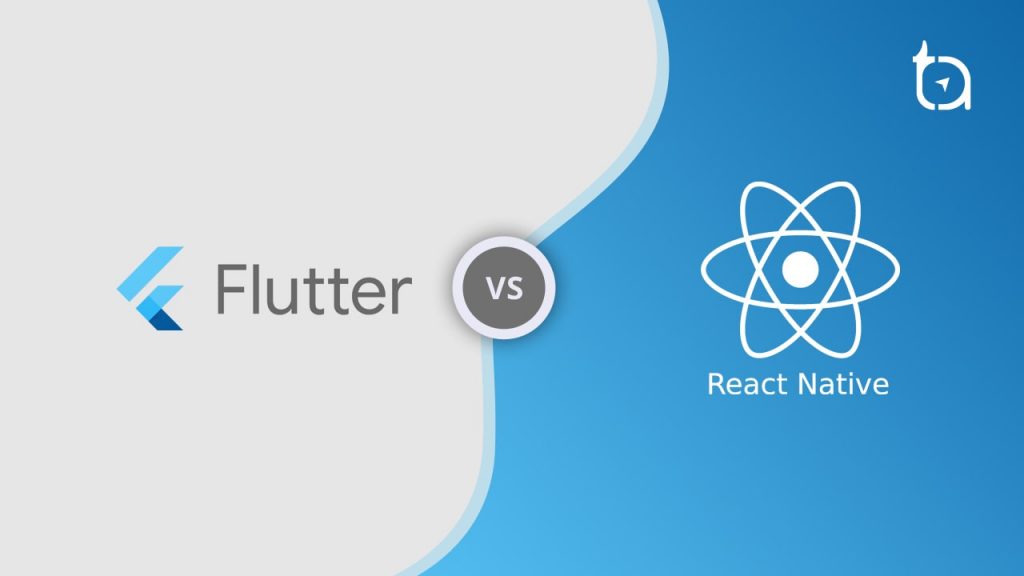Flutter vs React Native – Will Flutter Replace React Native?

Author : TechAffinity 25th Nov 2019

Will Flutter Replace React Native? We all have to wait longer to find out. What is clear is that these 2 frameworks are the best for hybrid app development. We hope this Flutter vs React Native blog will help you decide which framework works most suited for your business needs.
What is the Difference between Flutter vs React Native?
FlutterFlutterFlutter is an open-source UI software development kit created by Google. It is used to develop applications for Android, iOS, Windows, Mac, Linux, Google Fuchsia and the web. The first version of Flutter was known as codename "Sky" and ran on the Android operating system. was introduced by Google. Flutter is a UI toolkit for building applications for mobile, web, and desktop from a single codebase. It is free and open-source and primarily used for building native apps.
Facebook launched React NativeReact NativeReact Native is used for developing a native and lively mobile application for Android and iOS platforms. Since React Native is based on JavaScript’s framework, the applications are written using a mixture of JavaScript and JSX libraries.. React Native combines the parts of native development with React, a best-in-class JavaScript library for building user interfaces.
Flutter vs React Native – A detailed analysis
There is no clear winner. However, both frameworks are helping developers write simple and efficient code. The need for developers is to build Hybrid app developmentHybrid app developmentA hybrid app is created as a single app for use on multiple platforms like Android, iPhone, and Windows. It is a single product that works on many operating systems like iOS, Android, Windows, etc. They look and feel like a native application but are actually run by a company website. frameworks that compile fast. Let us explore further by comparing Flutter and React Native on a host of features.
Coding time – Flutter Takes Longer, Promises Better Quality & Usability
Flutter apps take more time to develop than React Native. Being a relatively new FrameworkFrameworkA framework is a collection of programs that you can use to develop your own application. It is built on top of a programming language. The framework is a set of pre-written code libraries designed to be used by developers. A programming language is a specified method of communication between the programmer and the computer., it does not have as many ready to use components like React Native. It produces high-quality code and its usability across devices is an added advantage. React Native enjoys more reliability being around for much longer. Better efficiency and simpler interface ensures a hassle-free app development experience for the developer.
Community – React Native Thrives With Online Discussion Forums
Flutter still needs time to develop a solid community. It is still in its early stages of development and hence is struggling to make a mark when compared to React Native. With some of the big brands using React Native, it might take a while before Flutter can truly make a visible impact. React Native has a huge community and there are developer support groups for discussing & resolving issues.
Developer Tools – Flutter has Better Compatibility & More Components
When it comes to developer ease and range of options available, Flutter is clearly the best option. With a range of extensions and IDEs, Flutter also supports React Native. It is also compatible with visual studio code, and android studio code. React Native has deleted a lot of components that make it easier for developers to code.
Documentation – Flutter Makes it Simple, Organized & Smooth.
No developer likes to spend too much time on documentation. Flutter recognizes this tendency and makes the whole documentation simple. Developers can use a mobile app, access tools and document at the same time. By making a tiring, complex and time-consuming process simple, organized and smooth, Flutter is a better option than React Native.
Performance – Flutter Performs Better with Hybrid App Architecture
A common feature that makes these two frameworks so competitive, is their use of Dart Framework. Flutter with its JavaScript layer connects easily with native components. With code reusability, developers can code faster. The C++ engine is flawless and supports JavaScript which makes it ideal for hybrid app architecture. Though React Native has a larger community, it has performance issues with regard to hybrid apps but works really well with native app integration.
Stability – React Native is Recommended for Projects of Large Size
Since it is used for projects of large size, React Native is known for its consistency, longevity, and reliability. It is celebrated and widely appreciated for these reasons. However, Flutter’s latest Beta release is being noticed for its impressive features supporting in-app purchases and Android app bundles.
Read More – 13 Reasons Why You Should Use Google’s Android App Bundle
User Interface – React Native Enhances Experience With its Dynamism
React Native is the best framework for developing dynamic apps with the best UI experience/support. It outclasses Flutter when it comes to adding native app components. Flutter is preferred and works best with owner widget sets. It is flawless with widgets but lacks a lot of components that end up affecting the overall customer experience.
Final thoughts – Is React Native Worth Learning?
Yes, and it is a smart choice. Flutter being a newer framework is going to take some time before it can really push Native React. One impressive thing about Flutter is that it is helping startups make a lot of money in quick time by helping create responsive mobile apps. It has a promising future.
Looking for the best mobile app development service? Drop your queries at media@techaffinity.com or schedule a meeting with our experts.